American Studies
-
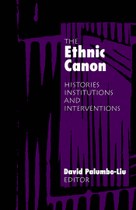 The Ethnic Canon
Histories, Institutions, and Interventions
David Palumbo-Liu, Editor
1995 Spring
The Ethnic Canon
Histories, Institutions, and Interventions
David Palumbo-Liu, Editor
1995 Spring
- Argues that texts are added to the canon only after an operation that attempts to resolve and neutralize historical and political contradictions and differences. The Ethnic Canon offers a wide variety of critical viewpoints and is unique in its pointed critique of the academy regarding specific authors and texts that have and have not been included in the canon. Contributors include Norma Alarcón, Paula Gunn Allen, Elliott Butler-Evans, Barbara Christian, Lisa Lowe, Colleen Lye, Ramón Saldívar, E. San Juan Jr., Rosaura Sánchez, Jana Sequoya-Magdaleno, and Sau-ling Cynthia Wong
-
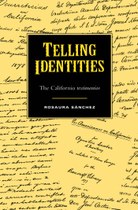 Telling Identities
The Californio testimonios
Rosaura Sánchez
1995 Spring
Telling Identities
The Californio testimonios
Rosaura Sánchez
1995 Spring
- Sánchez offers the first historical and literary analysis of thirty 1870s testimonios from the original Spanish-speaking settlers of Alta California. Telling Identities scrutinizes the role of gender, class, race, language, and ethnicity in group identity formation as it looks into history to help articulate the cultural politics of contemporary Chicano and Latino culture in the United States.
-
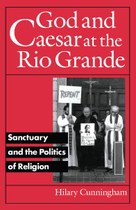 God and Caesar at the Rio Grande
Sanctuary and the Politics of Religion
Hilary Cunningham
1995 Spring
God and Caesar at the Rio Grande
Sanctuary and the Politics of Religion
Hilary Cunningham
1995 Spring
- Hilary Cunningham offers a fascinating account of the history and growth of the Sanctuary movement in the U.S., as she demonstrates how religion shapes and is shaped by political culture. Focusing on the Sanctuary located in Tucson, Arizona, Cunningham explores the movement primarily through the experiences of everyday participants conveyed through interviews with Sanctuary workers as well as reproductions of documents from her stays in Arizona, Mexico, and Guatemala. One of few books to document the culture of the religious left in the U.S., God and Caesar at the Rio Grande illustrates how a group of people used religious beliefs and practices to interpret and respond to State authority.
-
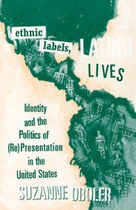 Ethnic Labels, Latino Lives
Identity and the Politics of (Re) Presentation in the United States
Suzanne Oboler
1995 Spring
Ethnic Labels, Latino Lives
Identity and the Politics of (Re) Presentation in the United States
Suzanne Oboler
1995 Spring
- Hispanic or Latino? Mexican American or Chicano? Social labels often take on a life of their own beyond the control of those who coin them or to whom they are applied. In Ethnic Labels, Latino Lives, Suzanne Oboler explores the history and current use of the label “Hispanic,” as she illustrates the complex meanings that ethnicity has acquired in shaping our lives and identities.
-
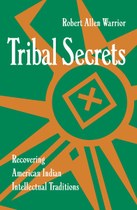 Tribal Secrets
Recovering American Indian Intellectual Traditions
Robert Warrior
1994 Fall
Tribal Secrets
Recovering American Indian Intellectual Traditions
Robert Warrior
1994 Fall
- “Robert Warrior writes at once to the memories of tribal survivance and the critical confidence of his generation; he ascertains intellectual histories that have been largely unconsidered in other studies of Native American Indians . . . a courageous comparative textual criticism.” --Gerald Vizenor, University of California, Berkeley
-
 Monitored Peril
Asian Americans and the Politics of TV Representation
Darrell Y. Hamamoto
1994 Fall
Monitored Peril
Asian Americans and the Politics of TV Representation
Darrell Y. Hamamoto
1994 Fall
- The first major study of Asian American representation on U.S. television.
-
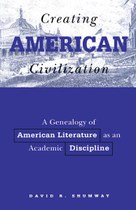 Creating American Civilization
A Genealogy of American Literature as an Academic Discipline
David R. Shumway
1994 Spring
Creating American Civilization
A Genealogy of American Literature as an Academic Discipline
David R. Shumway
1994 Spring
- “‘American literature’ seems by now so natural and inevitable an entity that we forget that it did not just grow organically out of American soil, much less spring full blown from the minds of a few geniuses. In this highly readable study, David Shumway recovers the forgotten social, historical, and institutional conditions that explain why the concepts both of ‘literature’ and of distinctive literary Americanness emerged together at a particular time and place and how their merger reshaped America's educational vision. Shumway has written a penetrating and provocative account of the making of American Civilization as an academic field.” --Gerald Graff, University of Chicago
-
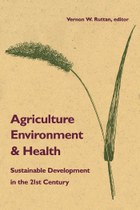 Agriculture, Environment, and Health
Sustainable Development in the 21st Century
Vernon W. Ruttan, Editor
1993 Fall
Agriculture, Environment, and Health
Sustainable Development in the 21st Century
Vernon W. Ruttan, Editor
1993 Fall
- Offers an interdisciplinary exploration of the implications of changes in institutional design and policy reform now underway at the global level. Ultimately, these changes will provide sustainable growth in agricultural production. Particular attention is given to the institutions that conduct research and implement changes in technology and practice in the fields of agriculture and health, as well as those that monitor the changes in resource endowments, the quality of the environment and the health, and productivity of the human resources employed in agricultural production.
-
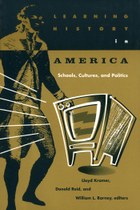 Learning History in America
Schools, Cultures, and Politics
Lloyd Kramer, Donald Reid and William L. Barney, Editors
1994 Spring
Learning History in America
Schools, Cultures, and Politics
Lloyd Kramer, Donald Reid and William L. Barney, Editors
1994 Spring
- As it extends recent discussions about multiculturalism into the sphere of contemporary historical understanding, this book sets out explicitly to explore the practical and theoretical implications of these discussions for people who learn and teach history in the United States. “Represents an excellent intervention into the debates over the canon, curriculum, multiculturalism, and popular memory. If the book only covered these issues, it would be an excellent text, but it goes a step further and analyzes questions regarding the relationship among history, authority and power as pedagogical as well as political issues. This book is brilliant in its conception, vital in its theoretical interventions, and crucial to anyone interested in history and pedagogy.” --Henry A. Giroux, Pennsylvania State University
-
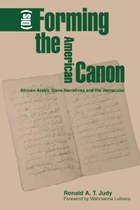 DisForming the American Canon
African-Arabic Slave Narratives and the Vernacular
Ronald A.T. Judy
1993 Fall
DisForming the American Canon
African-Arabic Slave Narratives and the Vernacular
Ronald A.T. Judy
1993 Fall
- Judy offers an alternative interpretation of literacy that challenges traditional Enlightenment discourse’s claim that literacy and reason are the privileged properties of Western culture. Judy argues, on the basis of his readings of autobiographical African-American Arabic slave narratives, that through the production of the Arabic text, the African slave already had all the elements that the West attributes to “reason” before his original introduction to Western culture-a literacy that already mediated between Africa and Europe. “Has the potential to completely remake American Studies while serving as an excellent example of what theoretical informed criticism should be.” --Paul Bové
-
 Fear of a Queer Planet
Queer Politics and Social Theory
Michael Warner, Editor
1993 Fall
Fear of a Queer Planet
Queer Politics and Social Theory
Michael Warner, Editor
1993 Fall
- In this diverse and balanced collection, the contributors explore the impact of ACT UP, Queer Nation, multiculturalism, the new religious right, outing, queerness, postmodernism, and shifts in the cultural politics of sexuality. Contributors: Lauren Berlant, Douglas Crimp, Elizabeth Freeman, Diana Fuss, Henry Louis Gates, Jr., Jonathan Goldberg, Cathy Griggers, Janet E. Halley, Philip Brian Harper, Andrew Parker, Cindy Patton, Robert Schwartzwald, Eve Kosofsky Sedgwick, and Steven Seidman.
-
 Contested Closets
The Politics and Ethics of Outing
Larry Gross
1993 Fall
Contested Closets
The Politics and Ethics of Outing
Larry Gross
1993 Fall
- A landmark exploration of the practice of revealing a public figure’s hidden homosexuality through the controversial practice of outing. “Combines a powerfully argued essay with a comprehensive anthology of articles to create an invaluable document on ‘outing.’ Gross’s fearless and fascinating book calls persuasively for ending a code of silence that has long served hypocrisy and double-standard morality at the expense of truth.” --Martin Duberman “This is a valuable contribution to the ongoing debate among journalists and gay activists over ‘outing.’ . . . Gross is a defender of the controversial practice, but one of the greatest strengths of this book is the evenhandedness with which he presents the arguments of each side. He argues that outing is a practice with ‘a long past, if only a short history,’ and spends much of the book’s first half putting it into a historical context. In the course of doing so, he discusses the nature and construction of gay identity and a history of the outing controversies of the past ten years. Gross is a lucid writer who makes a difficult case well. . . . The second half of the book is a collection of key texts in the debate on outing-including several by Michelangelo Signorile, the foremost journalistic proponent of the practice.” --Publishers Weekly
-
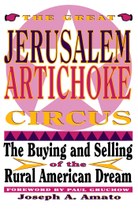 The Great Jerusalem Artichoke Circus
The Buying and Selling of the Rural American Dream
Joseph A. Amato
1993 Fall
The Great Jerusalem Artichoke Circus
The Buying and Selling of the Rural American Dream
Joseph A. Amato
1993 Fall
- In 1981, near the end of America’s second post-World War II energy crisis, and at the onset of the nations most recent farm crisis, American Energy Farming Systems began to sell and distribute what it deemed a “providential plant” destined to be a new and saving crop—the Jerusalem Artichoke. This volume recounts this story of the bizarre intersection of evangelical Christianity, a mythical belief in the powers of a new crop, and the depression of the U.S. farm economy in the 1980s.
-
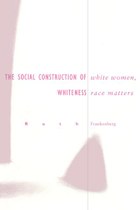 White Women, Race Matters
The Social Construction of Whiteness
Ruth Frankenberg
1993 Fall
White Women, Race Matters
The Social Construction of Whiteness
Ruth Frankenberg
1993 Fall
-
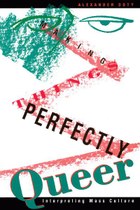 Making Things Perfectly Queer
Interpreting Mass Culture
Alexander Doty
1993 Spring
Making Things Perfectly Queer
Interpreting Mass Culture
Alexander Doty
1993 Spring
- Doty demonstrates how queer readings can be—and are—performed by examining star images like Jack Benny and Pee-wee Herman, women-centered sitcoms like Laverne and Shirley and Designing Women, film directors like George Cukor and Dorothy Arzner, and genres like the musical.
-
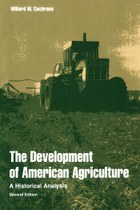 The Development of American Agriculture
A Historical Analysis
Willard W. Cochrane
1993 Spring
The Development of American Agriculture
A Historical Analysis
Willard W. Cochrane
1993 Spring
- The classic historical study of American agricultural economic development, thoroughly revised and updated. “Not only describes but analyzes and explains the economic behavior of agriculture as a functional sector of the economy in the process of economic development. . . . There is no substitute.” --James T. Bonnen
-
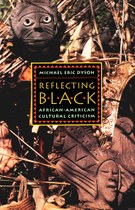 Reflecting Black
African-American Cultural Criticism
Michael Eric Dyson
1993 Spring
Reflecting Black
African-American Cultural Criticism
Michael Eric Dyson
1993 Spring
- From rap music to preaching, from Toni Morrison to Leonard Jeffries, from Michael Jackson to Michael Jordan, Reflecting Black explores as never before the varied and complex dimensions of African-American culture through personal reflection, expository journalism, scholarly investigation and even homily.
-
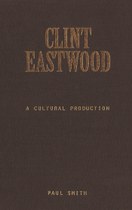 Clint Eastwood
A Cultural Production
Paul Smith
1993 Spring
Clint Eastwood
A Cultural Production
Paul Smith
1993 Spring
-
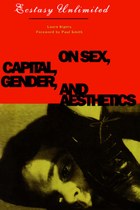 Ecstasy Unlimited
On Sex, Capital, Gender, and Aesthetics
Laura Kipnis
1993 Spring
Ecstasy Unlimited
On Sex, Capital, Gender, and Aesthetics
Laura Kipnis
1993 Spring
- A unique collection of essays on popular culture, politics, aesthetics, feminism, and postmodernism, along with complete scripts from three of Kipnis’ videotapes.
-
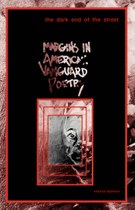 The Dark End of the Street
Margins in American Vanguard Poetry
Maria Damon
1993 Spring
The Dark End of the Street
Margins in American Vanguard Poetry
Maria Damon
1993 Spring
- Damon foregrounds a number of modern American poets work and lives in order to argue that the American avant-garde is located in the experimental literary works of social “outsiders.” Discussed is the work of Black/Jewish surrealist street poet Bob Kaufman, Boston-Brahmin Robert Lowell and three teenaged women writing from a South Boston housing project, pre-Stonewall gay poets Jack Spicer and Robert Duncan, and Jewish lesbian-in-exile Gertrude Stein. “A work of art as well as a work of criticism. . . . Addresses important questions about art and social life, about the margins and the center, and about oppression and suppression.” --George Lipsitz